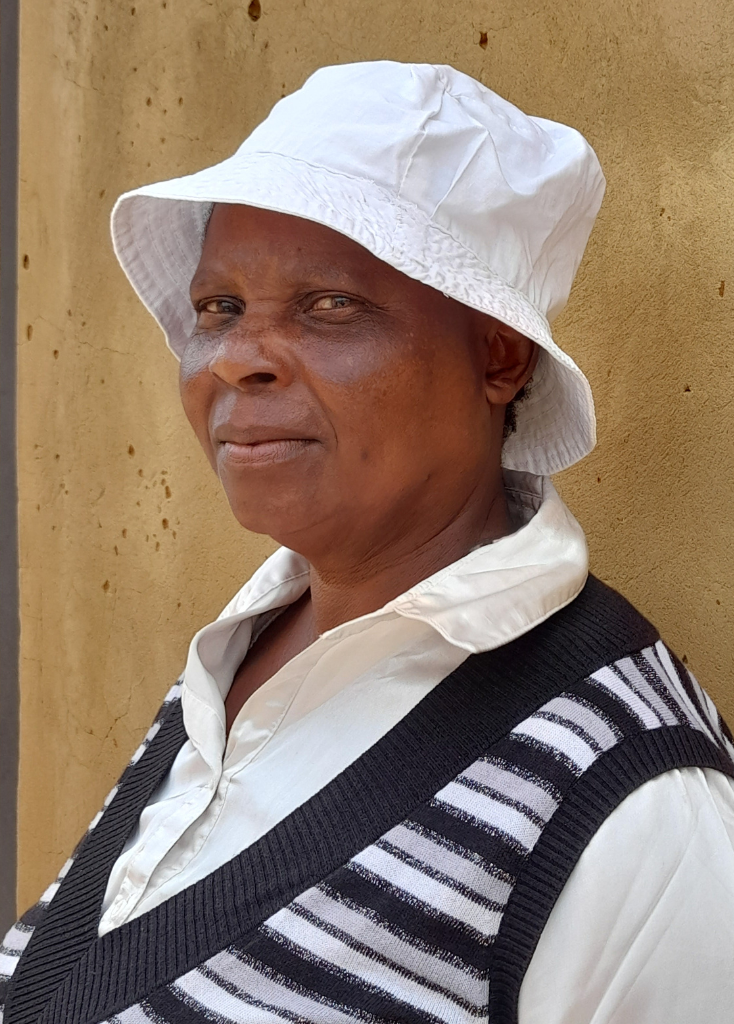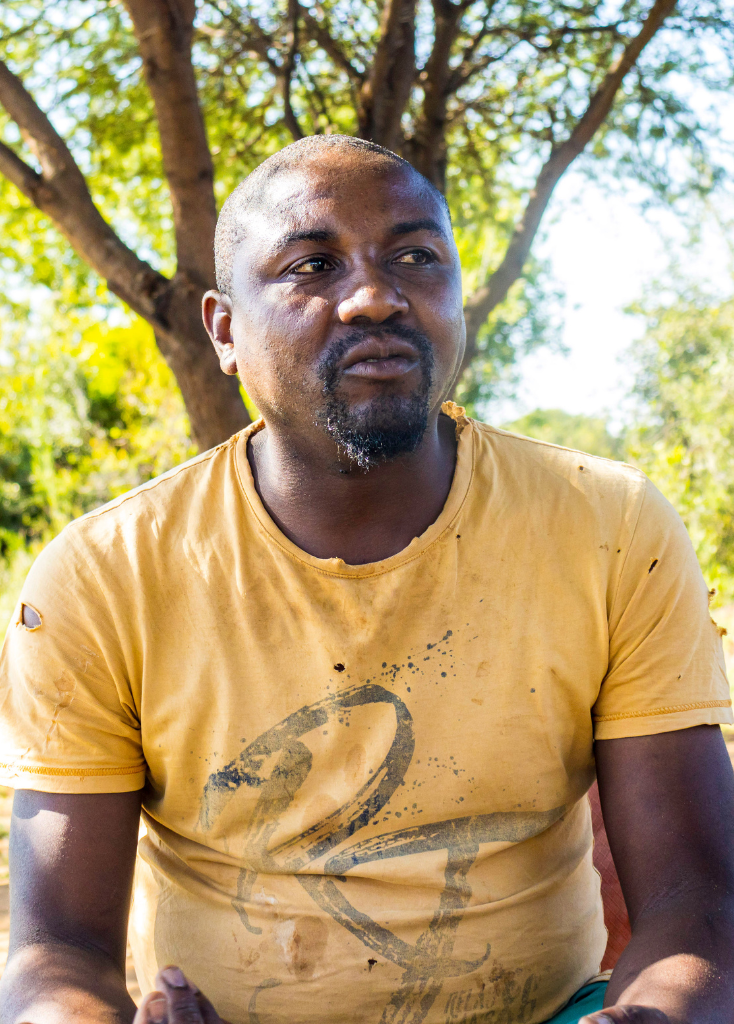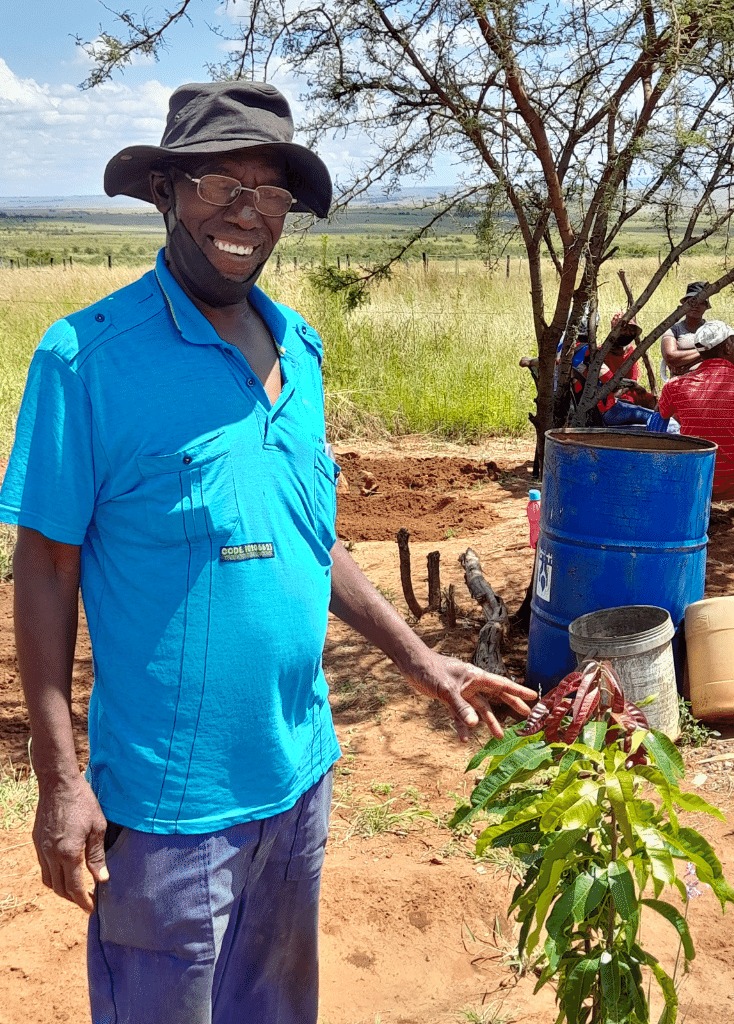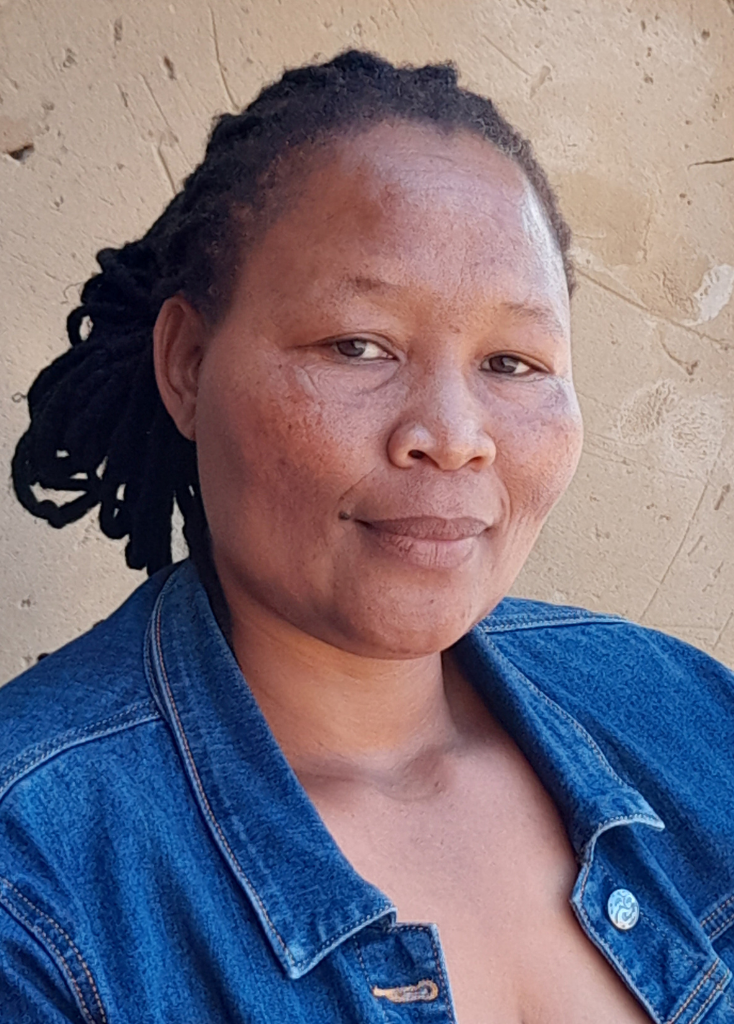
BBL PARTICIPANT: Elizabeth Sekote, Tsakane, Ekurhuleni, Gauteng
In a Nutshell
Through her participation in SocioTech’s Broad-Based Livelihoods (BBL) strategies to stimulate personal economic activity, Elizabeth Sekote improved her farming techniques and supported many others to do the same. She has a thriving healing, culture, and craft business. She hopes that her example will inspire her neighbours.
She says…
I grew up in Witbank. My father was a mineworker, and he did long hours underground, but he still found the time to garden. We always had seasonal fruit and vegetables. I remember being a tiny girl and trying to copy him by pulling out spinach and getting a slap from my mother for being so ‘stout’ (naughty). I understand her frustration. Little children go through that phase where they want to be helpful, and they really try, but they can be very destructive.
When I was older, I spent time with my grandparents in Sekhukhune where they grew mabele, mielies, pumpkins and all sorts of beans. Through working with my grandmother in her garden, I learnt about so much more than soil and plants. I also learnt about life. I learnt to work hard and that rewards take time. Plant today, work hard looking after those plants and only then do you eat. That is a good life lesson - even today, I make my granddaughters help me water and weed so that they can learn that lesson. These days youngsters want everything now, now, now but that is not the way things happen.
We did a bit of agriculture at school, but I don’t think I was a very conscientious student. I had a boyfriend and I left school as soon as I could. It was only after my husband passed away that I started to focus on food gardening again. I realised that I was on my own. I was a widow in a squatter camp. If I wanted my life to change, I was going to have to make that happen.
"I realised that I was on my own. I was a widow in a squatter camp. If I wanted my life to change, I was going to have to make that happen."
Before I met the people from SocioTech, my garden was doing quite well but the training they provided brought my productivity up a lot. Soil preparation was not something that I understood before. I did know about manure, but that trenching method was new to me, and it has made a huge difference. The quantity and quality of the product are both better if your soil has been improved. And water stays in the soil with mulching, which saves time and money too. When I got my tunnel, things really improved. A tunnel protects plants from sun and animals, so it makes a big difference.
Part of the SocioTech way of working is to teach and train and support those who come after you. I am always there, ready to help. When I explain to new gardeners how to prepare trenches with cans and bones, they often look shocked, and at the beginning some of them complain about the amount of work involved in that first step, but really in this area there are a lot of tin cans thrown away and the men who sell skop leave a lot of bones behind, so it is actually quite quick to get what you need. It is also good for the community to get that stuff off the streets. If all that rubbish just hangs around, it brings rats.
The people who stay with the training and do the trenches right, always see that it was worth putting in that effort. Especially when they are eating their delicious Sunday Kos straight from their own gardens. There is nothing like looking at your plate of chicken and pumpkin and green beans, and knowing you did that with your own efforts. And then, when the sweet peaches in syrup with custard come onto the table for dessert, that is the greatest joy. Not only because it tastes delicious, but also because it is healthy and saves money.
It is about motivating people to see that the future is theirs to change. When people have been unemployed for a long time, finding that motivation can be hard. Being unemployed makes you feel hopeless, but I remind the new gardeners that gardening can change your life. The garden is just the first step. It is the start to change. It is what lets you see that you have power to do something. Then you can become an entrepreneur. Start selling. Make a business. It is about knowing that no one needs to wait for a job. They can make their own money and be their own business. Start with carrots and lettuces and see where the future takes you. I let them know that I will always be available to support them. I am here to help.

One of the things I like about working with SocioTech, is that it is a programme that can grow as you do. It is also a programme that is flexible. Everyone has their own skills and interests. They don’t just say “here is one plan” and everyone must fit into it. In my case, I am very interested in African crafts and culture and traditional healing. Through the MyFuture skills training I have been able to grow businesses in that space.
The basic training is quite general and can apply to anyone. For instance, I learnt about saving and budgeting and serving customers and seeing where there are gaps in the market. Then they show you how to apply those basic skills to your life and talents.
My main business centres around African healing, arts and culture. I grow gourds to dry and make them into traditional bowls and spoons and pots. I make and sell a lot of Zulu and Ndebele beaded attire. I am not Zulu, but Zulu attire is where the market is. Those people are very committed to their traditional dress, and they buy a lot more of it than people from other communities. The market is in Zulu attire, so that is where I focus most of my time and energy.
I am proud of how far I have come. I have built a house in Sekhukhune with the savings from my businesses. I was a widow in a squatter camp, and I am now the owner of a 5-roomed house. That makes me so happy. When I think about it, I laugh.









